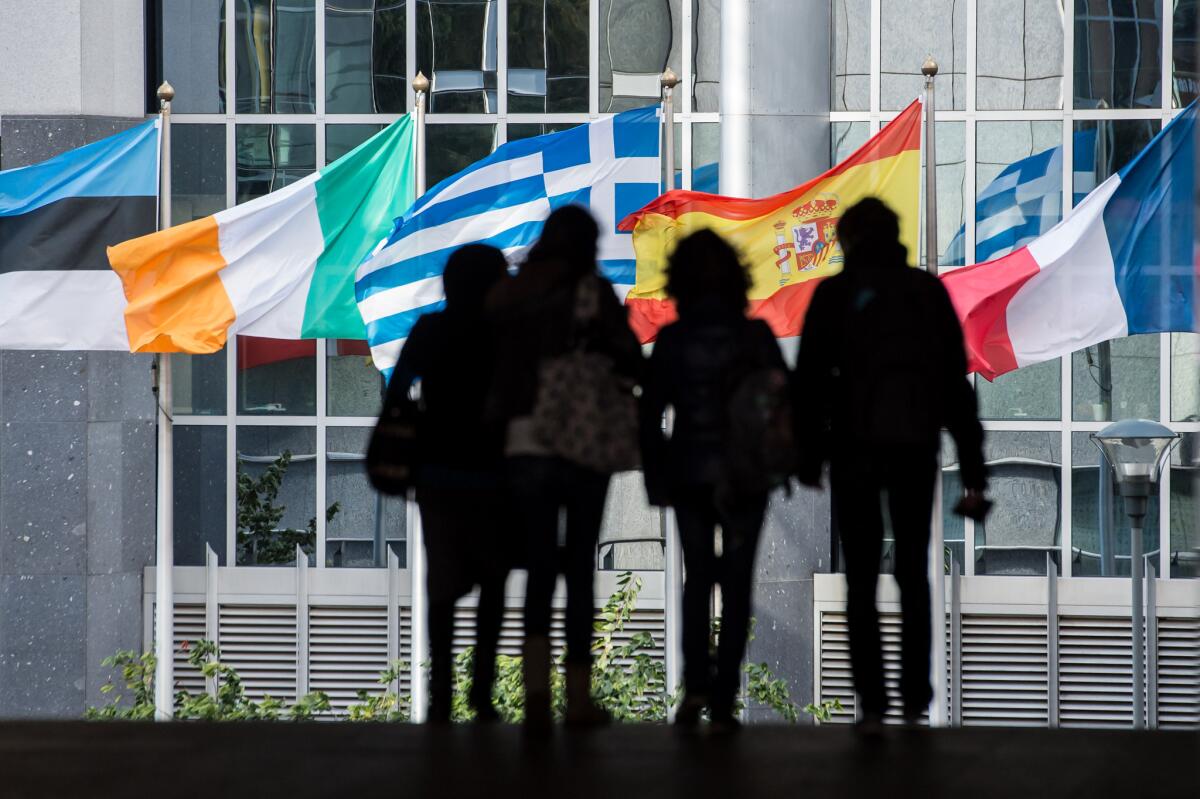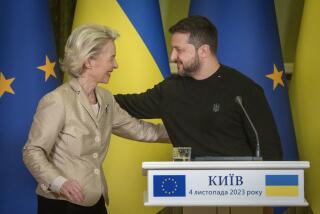Seven Balkan wannabes still need reforms to join EU, report says

- Share via
The often contentious European Union family of nations grew to 28 in July with the induction of Croatia, but a Wednesday report to the European Commission makes clear that none of the eight other states hoping to join will be doing so any time soon.
Turkey has been stymied in its 26-year-old membership bid by opposition from EU members Germany and France and its occupation of northern Cyprus. In the report to commissioners in Brussels, officials evaluating applicant states’ progress toward meeting EU membership requirements criticized Turkish authorities for resorting to violence to break up antigovernment demonstrations this past spring.
“The excessive use of force by police and the overall absence of dialogue during the protests in May/June have raised serious concerns,” the European Commission said. It referred to the police crackdown that killed four and injured 7,500 after masses turned out to denounce Prime Minister Recep Tayyip Erdogan’s government for bulldozing an Istanbul park to make way for a high-rise.
Serbia was described in the EU enlargement report as having made “visible and sustainable progress” in smoothing relations with its now-independent former province, Kosovo. But hostility toward the Albanian-dominated nation that declared independence in 2008 remains fierce among the Serb minority in Kosovo. In pursuit of EU membership, Belgrade has made conciliatory gestures toward peace with its former province, but tensions could erupt again during local elections set for Nov. 3.
The enlargement report presented to European commissioners in Brussels also urged Serbia to do more to fight organized crime and corruption and to respect the rights of minorities.
Kosovo‘s hoped-for membership is an even more distant prospect, the report suggests, as its claim to statehood isn’t recognized by China, Russia or five EU members states.
Albania was granted EU candidate status at the Wednesday meeting, but formal negotiations won’t begin until the Adriatic Sea state, still recovering from the region’s most brutal communist dictatorship, demonstrates better adherence to the rule of law and sustainable democratic reforms, the report says.
For the fifth consecutive year, the commission approved the opening of accession talks with the former Yugoslav republic of Macedonia, or FYROM, as EU member state Greece insists its neighbor be called.
Despite the commission’s judgment that the former republic “continues to sufficiently fulfill the political criteria for EU membership,” Athens has blocked the emergence of an independent state calling itself Macedonia since the neighboring republic broke away from the Yugoslav federation two decades ago. Greeks insist that only their northern province of Macedonia has claim to the historic name.
Montenegro opened talks with the EU on membership last year but still needs to more effectively tackle organized crime and high-level corruption, the commission was told. And Bosnia, nearly 20 years after the vicious war among Serbs, Croats and Muslims, remains deeply divided along ethnic lines and devoid of any “shared vision by political representatives,” the commission report says, suggesting that Sarajevo remains far from being in political shape to join the EU.
The only country outside of the battle-scarred Balkans still going through the EU membership paces is Iceland, where the main unresolved issue is how to integrate vital fisheries into the bloc’s economic collaboration. But the Icelandic parliament decided in May to suspend its application until a national referendum on whether to join could be conducted.
ALSO:Inspectors visit 11 chemical weapons sites in Syria
Pakistani official, seven others killed by suicide bomber
Political gridlock over U.S. debt not just America’s problem
Twitter: @cjwilliamslat
More to Read
Sign up for Essential California
The most important California stories and recommendations in your inbox every morning.
You may occasionally receive promotional content from the Los Angeles Times.











